The History of Sunn Amplifiers
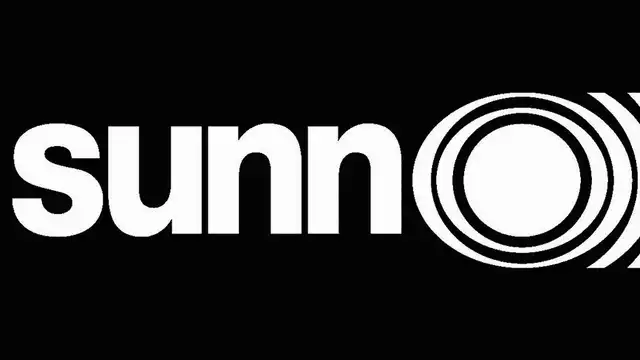

Sunn amplifiers are iconic, especially in early rock and roll and stoner/doom metal. Their logo and red knobs make them easily identifiable, and their sound is no different. Sunn amps were able to catch the attention of Pete Townsend, Jimi Hendrix, the Beach Boys, the Melvins, and more.
But what made their amps special? How did Sunn rise from relative obscurity, only to end up back where they started? Keep reading to find out about the history of Sunn amplifiers and why they became so popular.
The Sundholm Brothers
In 1963, a rock band from Portland, Oregon called the Kingsmen released their cover of “Louie, Louie.” The single was a massive hit, and the Kingsmen headed for a country-wide tour. However, the band was ill-equipped to play large venues.
Bassist Norm Sundholm quickly realized his small bass amp was not going to cut it. Norm’s brother, Conrad, had experience working with audio gear, so he helped upgrade the bass amp. Soon after, the brothers successfully created a high powered, concert bass amp they could use for their shows.
While the business had not been officially formed, the Sundholm brothers started making amplifiers out of the family garage. These early amps, as well as their later tube amps, were based heavily on David Hafler designs and Dynaco preamps. The first units even featured some modified Dynaco parts, such as their preamps and chassis.
By 1965 the demand for Sunn amps was increasing due to the growing rock movement and its demand for loud concert amplifiers. The family garage could no longer keep up, so the brothers officially founded Sunn amplifiers and opened a factory in Tualatin, Oregon.
Tube Amps
The original Sunn tube amps are a subject of much discussion. Many people think they are inferior when compared to the Marshall and Fender amps of the time, being too heavy and loud without a good enough sound.
Sunn produced many different models of guitar amps, bass amps, PA amps, mixers, cabinets, and more during this period, though information is hard to find since the Sunn website no longer exists. Some of the more popular models included the 100s, 200s, 1000s, Beta Lead, Concert Series, Coliseum Series, Solaris, Sonaro, and more.

Sunn was also rooted in hi-fi sound and focused on bass amps during the early years (though they still made guitar amps, PA amps, and more). Since bassists at the time wanted loud clean tones, their focus was making loud amps that didn’t break up at higher volumes. While this was great for bassists, it became less desirable for guitarists as overdriven sounds became focus.
Despite that, these amps have also earned a cult following. Sunn tube amps have their own distinct sound and feel. They are incredibly loud, as they were designed for concert use. Sonically, they are very deep and bassy with a very tight, snappy response. The headroom on Sunn amps is also astonishingly high, allowing players to get concert level volume while maintaining a clean tone. This, combined with their head start in concert audio gear, led to Sunn tube amps becoming widespread.
Players
Some of the biggest acts of the 60s and 70s used Sunn amps, and they grew iconic as a result. Here are some of the most famous players of Sunn tube amps.
Jimi Hendrix
Since more has been written about Hendrix’s gear than most important historical events, I’ll keep this short. Hendrix experimented with a lot of different gear throughout his career, but the Jimi Hendrix Experience signed an endorsement with Sunn in 1968. The band exclusively used Sunn gear in live performances for a brief period of time, but Jimi eventually got restless and continued experimenting with gear.

Pete Townsend
In 1967, Pete Townsend and the Who started using Sunn amps and PA equipment after encountering low quality gear in the US. The gear was much better for large concerts than their other gear, and the Sunn amps could handle more abuse than most other amps (a necessity for the Who). They continued using Sunn amps until mid-1968 when they switched to Sound City amplifiers. The Who even recorded a radio ad for Sunn during this time.
Sunn O)))
It’d be hard to write a blog about Sunn amps without mentioning the band Sunn O))). Their music certainly isn't for everyone, but an array of Sunn amplifiers powers their intensely heavy and distorted drones, as well as other tube amps. They use multiple Model-Ts, resulting in a truly deafening sound (seriously, wear earplugs if you see them live).
Sunn’s Model T amplifiers are one of their most desired, becoming an icon of stoner and doom metal. They are unbelievably loud and clean, serving as the perfect pedal platform for stupidly-loud doom metal.
Solid State Amps
Though solid state amps are thought of as being thin, harsh, and cold, Sunn’s solid state amps are an exception. They were able to create solid state amps that were still warm, bassy, and rich. On top of that, the C-MOS distortion used on many of their amps was perfect for stoner and doom metal.
Players
Because of their solid state amps’ abilities and dependability, they became fairly popular amongst touring and studio musicians. Here are some of the most iconic Sunn solid state users.
Buzz Osborne
One of the most iconic users of Sunn’s solid state amps has to be Buzz Osborne of the Melvins. He has used a Sunn Beta Lead throughout his career, making the Beta Lead one of the most sought after Sunn amps. Buzz’s Beta Lead tone is thick, punishing, and heavy—a perfect mix for the Melvins’ doom metal sound.
Adam Jones
Adam Jones of Tool used a Sunn Beta Lead while recording Lateralus, one of their most successful albums. While Jones now uses a variety of amps, including a 1976 Marshall Super Bass and a Diezel VH4, the Beta Lead sound from Lateralus is one of his most classic tones.
Kurt Cobain
Kurt Cobain actually used a Sunn Beta Lead with Nirvana during the Bleach tour in 1989 and 1990. While he’s more known for playing Fender amps and occasionally Mesa Boogies, the Beta Lead fits his more aggressive style of the Bleach-era well. Cobain stopped using the amps after Nirvana's 5/1/90 show at the Cat’s Cradle in Chapel Hill, North Carolina when he trashed the amps.
Fender Takes Over
In 1985, Fender purchased Sunn. Many longtime devotees who had grown accustomed to the Sunn sound were upset by the move and worried that Fender would underutilized the company. Sadly, these fears were largely justified.
After acquiring the company, Fender made a variety of different products under the Sunn name. Like the original Sunn, these products included everything from guitar and bass amps to PA amps and speakers. For the most part though, none of these amps and speakers truly lived up to the Sunn name. There were a couple of interesting exceptions though.
One piece of peculiar gear from the Fender-era is the Sunn Mustang. Again, the name is a bit misleading—Sunn (or Fender) didn't really make these guitars. Fender licensed out their Stratocaster design in the late 80s to manufacturers in India and China, and some of these guitars and basses were produced under the Sunn name.
For the most part, these instruments were cheaper foreign versions of their USA Fender counterparts. They are surprisingly well-built though and are comparable to the 70s made-in-Japan (MIM) Stratocasters. These guitars have avoided viral popularity like many other vintage guitar oddities, so they can still be had fairly cheap.
The most famous piece of Fender-era Sunn gear is the Model-T reissue. However, the Model-T name is a bit misleading, as the amp shares almost no technical similarity to the original Model-T. Still, it was a Model-T reissue in spirit, providing incredibly loud and bassy tones. They featured a clean and distorted channel (which was very distorted). The amps were high quality and provided a unique tone that wasn’t similar to any other amp. To Model-T and Sunn purists though, the reissue was nothing more than a decent Fender amp with a Sunn logo slapped on it.
Unsurprisingly, foreign made guitars, just-okay amps, and a half-hearted Model-T reissue couldn’t keep Sunn profitable enough for Fender. In 2002, Fender retired the Sunn brand and hasn’t used it in the 20 years since. Fender even took down the official Sunn website, erasing a plethora of important information about the amps and officially closing the door on a brand with decades of history, accolades, and fame.
Conclusion
While Sunn amps may not be the first thing people think of when they hear “classic rock guitar amps,” they have earned their place in rock history. Used by legends like Jimi Hendrix and Buzz Osborne, Sunn amps have developed a cult following for their unique sound and image. Though Fender bought the company in 1985, they were never able to recreate what made Sunn amps special and retired the brand in 2002. Thankfully, many musicians still use Sunn amps, and they're still rumbling on stages across the country.
Other Posts you may like

Guitar Strings Order: How the Guitar is Tuned and Why

Two Handed Tapping: Our Top 8 Tappers of All Time
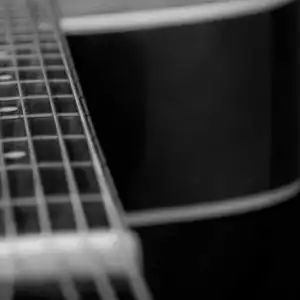
Which Guitar Strings Wear Your Fret Wire Down More?
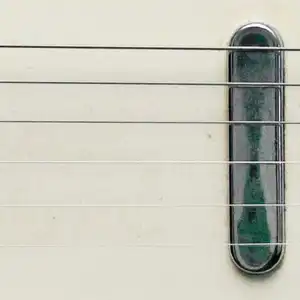
What is Nashville Tuning? Its History, Best Guitar Strings & Uses
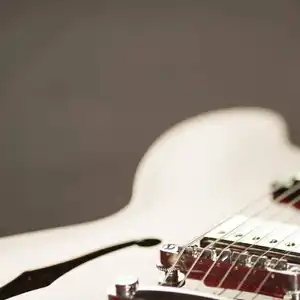
Guitar Scale Length Explained: String Tension & Playability
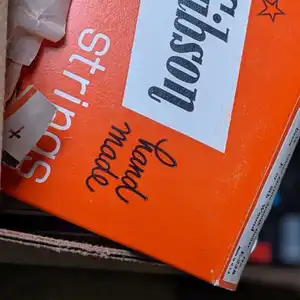
What Guitar Strings I Used To Play...
0 Responses
Leave a Reply
Your email address will not be published. Required fields are marked *

